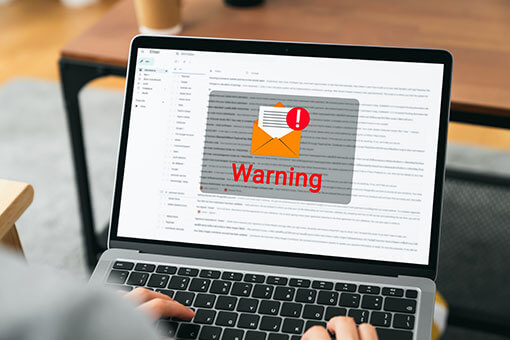Check Point warns that a large-scale phishing campaign is targeting Facebook accounts with phony copyright infringement notices.
The phishing emails have targeted more than 12,000 email addresses at hundreds of companies. Nearly all of the emails targeted individuals in the US, the EU, and Australia, though the researchers also observed some phishing templates written in Chinese and Arabic.
The threat actors are abusing Salesforce’s automated email marketing service to send the phishing emails, increasing the appearance of legitimacy.
“In other words, they don’t breach any terms of service or the Salesforce security systems,” Check Point explains. “Rather, they use the service normally and choose not to change the sender ID. That way, the email is branded with the email address noreply@salesforce[.]com.
The emails themselves contain phony versions of the Facebook logo and falsely notify recipients of copyright infringement. ‘It has been reported that your recent activity might be in violation of copyright laws,’ reads one email.”
If a user clicks the link in the email, they’ll be taken to a phony Facebook support page designed to harvest their credentials. Check Point says individuals who run Facebook business accounts should be particularly wary of these scams.
“Organizations that rely on a Facebook page as a storefront, for advertising purposes, for awareness purposes and/or other business activities may be particularly vulnerable to this phishing threat,” the researchers write. “Any cyber criminal who gains access to a Facebook admin account can potentially gain control over a business page.
The individual can then alter content, manipulate messaging, or delete posts. Security settings could also be changed, preventing authentic administrators from easily re-accessing the account. An account breach of this nature can subsequently result in loss of client trust.”
What You Should Do
- Verify the source: Always double-check the sender’s authenticity. Meta typically contacts page owners through the email associated with their business page or through the page’s Business Manager account. Meta will never contact you exclusively through Messenger.
- Avoid clicking links: Don’t click on any links in suspicious messages, especially if they promise to resolve policy violations. Instead, navigate to your Business Manager account directly through the official Meta website to address potential issues.
- Educate your team: Make sure your team members who have access to the business page are aware of these scams and know how to handle them appropriately.
- Report suspicious activity: If you receive a message that seems fishy, report it to Meta immediately. The platform takes fraudulent activity seriously and will investigate accordingly.
- Enable two-factor authentication (2FA): By enabling 2FA for your Meta (Facebook) account, you’ll add an extra layer of security.







Leave A Comment